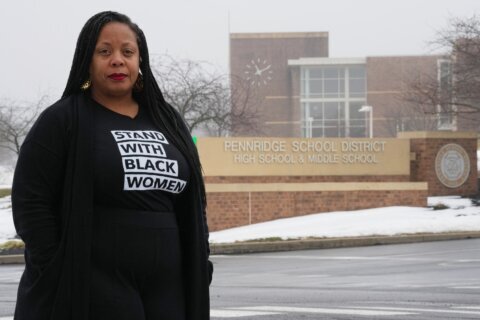Back-to-school season can bring intense anxiety for some children and their families, but one expert in D.C. said it shouldn’t always be considered a bad thing.
“For most kids and families, the stress that they feel around the start of the school year is healthy,” said Dr. Matthew Biel, a child and adolescent psychiatrist with MedStar Health in D.C.
Stress is a way that “our bodies and minds get us ready for a new challenge,” according to Biel.
In July, a MedStar Health survey found that, out of nearly 1,000 adults in D.C. and Maryland, most parents have a mix of excitement and worry, especially concerning their children’s physical and mental well-being when they had to go back to school.
According to the survey, “61% of children experience school-related stress as they return to class,” and “59% of parents feel schools should enhance their mental health support.”
“Feeling nervous and uncertain about what’s to come and wondering if we’re up to the task are all things that are an important and normal part of preparing for a new challenge,” Biel said. “One of the jobs that we have as doctors is to help people distinguish between what’s a helpful kind of stress and what’s the kind of stress that might be overwhelming, that needs support and attention.”
According to the survey, parents are concerned about a variety of issues regarding their children going back to school.
“Stress, mental health and bullying top the list, with more than three out of four parents citing concern for these issues,” the survey found.
“What I really encourage kids and families to do is to, first of all, think about how they can form a partnership with their school,” said Biel. “Identify the teachers and other adults at school who are going to be their allies and help them solve problems.”
The survey found that 59% of respondents said “open communication” between kids and parents was key in dealing with back-to-school stressors.
Fifty-three percent said that “reinforcing sleep routines” was key, while 49% said they prioritize “encouraging extracurricular activities.”
“We know that kids who are involved with extracurricular activities, particularly in high school communities, do best at having lots of connections both with adults and other students,” said Biel. “A lot of activities are sources of enjoyment and self-esteem.”








